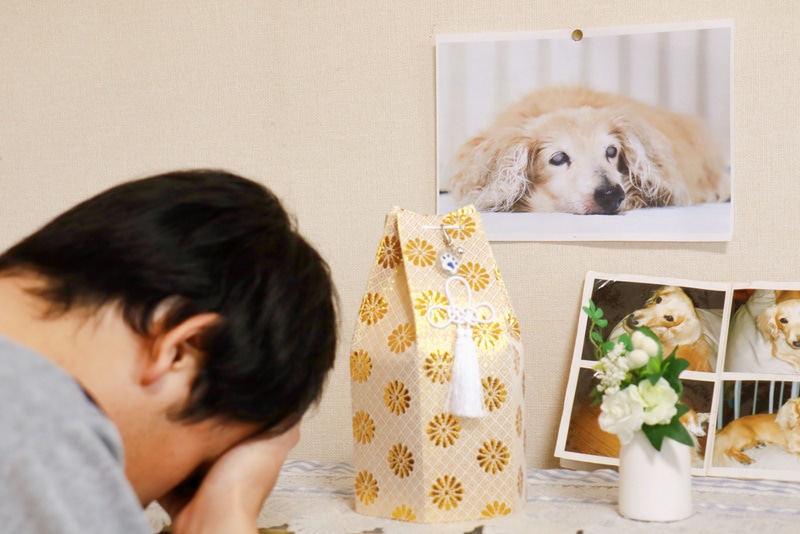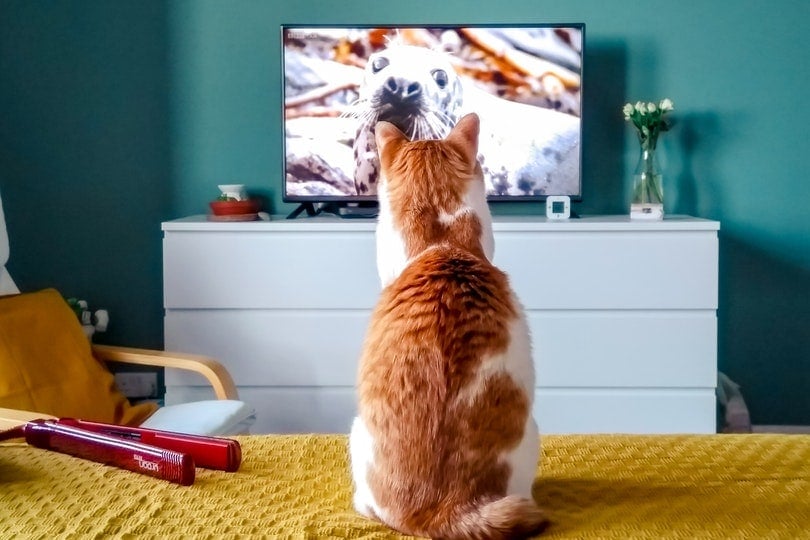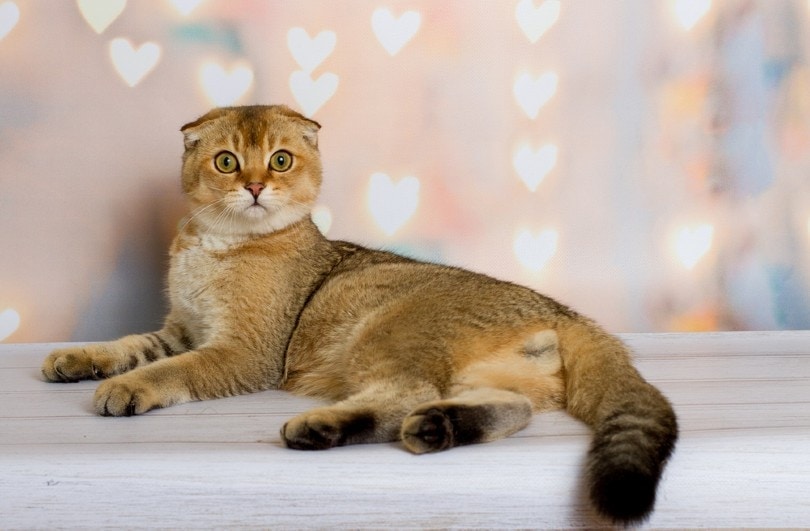Why Does My Cat Eat Tape? 6 Vet-Reviewed Reasons
By Jordyn Alger
Updated on
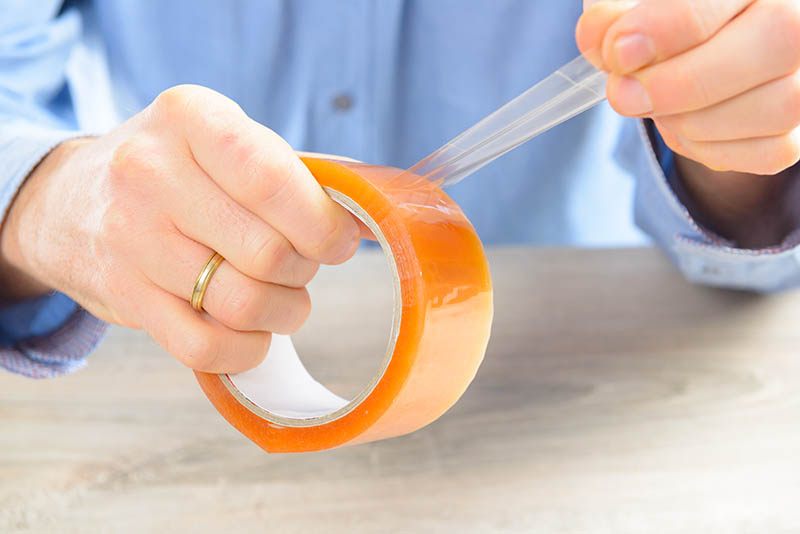
Cats seem to get into the strangest things. Whenever you wrap presents, do arts and crafts, or otherwise use tape, you’ve undoubtedly had to ward off your cat from time to time. So, what’s the deal with tape? Why do cats like it so much?
There are a few possible answers, ranging from harmless to worrisome. If you want to learn more about the effects that eating tape may have on your cat and how to stop his odd appetite, keep reading below. Make sure your cat does not ingest any tape, as this may cause various health issues and will require veterinary attention.
The 6 Possible Reasons Why Your Cat Is Eating Tape
1. The Taste Is Intriguing
The reason your cat can’t get enough tape could be as simple as the taste and texture. Although it may sound disgusting to us, the sticky adhesive on the bottom of strips of tape may taste good, or at least interesting, to your cat.
The smell may also entice your cat, as cats rely heavily on their sense of smell. Both rubber-based adhesives and acrylic-based adhesives may smell good to your cat. Some types of adhesives may be directly harmful to cats if licked or ingested based on their chemical composition, but certainly sticky materials such as these come with an array of possible ill effects.
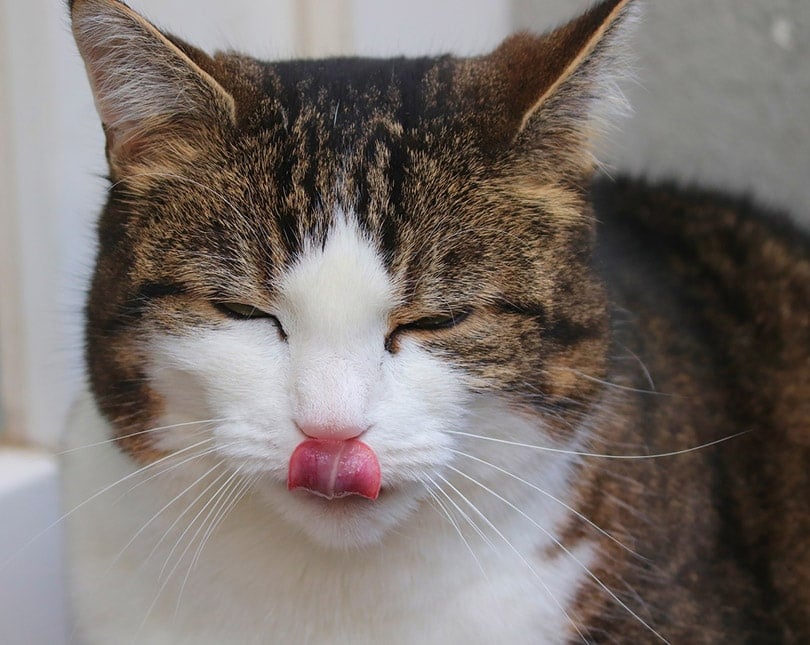
2. Tape Makes Fun Crinkling Sounds
Taste and smell aren’t the only tempting qualities of tape. Your cat could also be drawn in by the sounds it makes while they attempt to munch on it.
Tape may not make a ton of noise while it is still on the roll, but if your cat is more interested in chewing on torn strips of tape, these strips may make quiet, crinkly noises while they lick them. Your cat may not intend to eat the tape but may do so by accident while licking it or biting it, so it’s important not to leave any tape lying around.
3. Pure Curiosity
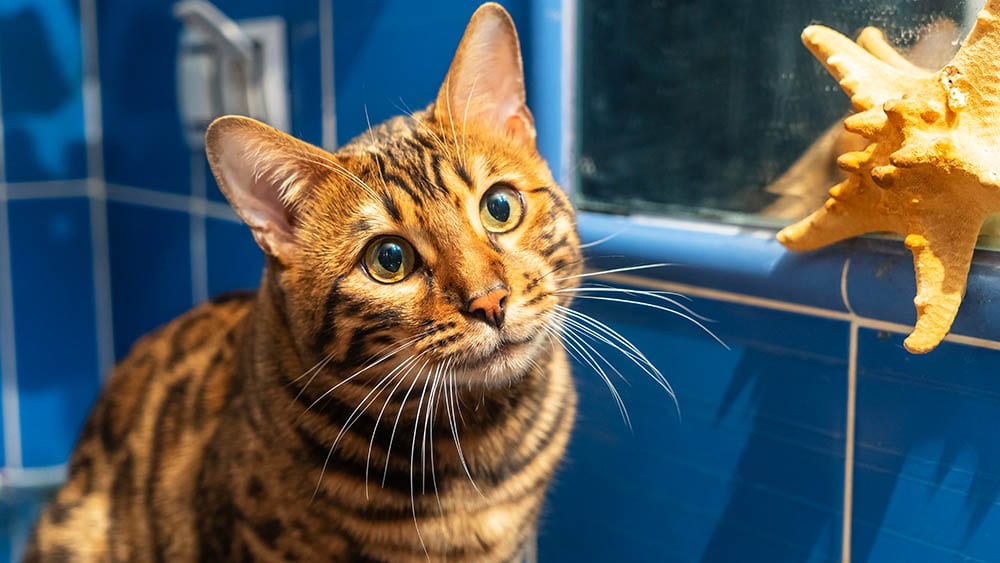
The tape’s smell, taste, and sound may entice your cat, but curiosity may keep them coming back for more. If your cat is investigating the tape, they may lick it or gnaw on it to get a better idea of what it is, particularly if the tape has been in contact with food.
Cats are famously curious, after all. If there is tape lying around and it is unfamiliar to your cat, chances are they will want to check it out. Afterward, some cats may develop a tape-licking habit if they find that it tastes or smells good.
4. Boredom
Just like you and I, cats can get bored. If your cat is bored, they may find ways to entertain themselves. That may include licking or chewing on tape. If you think your cat may be bored, look for some of these signs: overgrooming, overeating, inactivity, sleeping more, pacing, scratching, chewing furniture, apathy, and chasing or fighting behaviors.
The best way to combat your cat’s boredom is to entertain them and provide plenty of enrichment. Interactive toys, scratching posts, and cat trees are great ways to insert some spice into your cat’s life. Rotating toys can prevent them from becoming disenchanted with them, ensuring that they feel new and exciting for a long time. Taking your cat for a walk on a harness after training them how to do it or building them a secure catio are other options to allow them to enjoy the outdoors.
5. Stress
Another reason your cat may be snacking on tape is stress. Stress may cause your cat to behave strangely. For instance, if you and your cat are separated for a prolonged period, have just moved to a new home, or have welcomed a new pet into the house, your cat may be under a lot of stress.
Signs that your cat is dealing with stress include gastrointestinal issues such as diarrhea, vomiting, reduced appetite, hiding, vocalization, urinating outside of the litter box, excessive grooming or scratching, a change in regular routines, and more aggressive behaviors.
To help your cat with their stress, you first need to identify the root of their anxieties. Once you have deduced that, you can remove the stressor from their environment or help them cope comfortably if removing it is not possible.
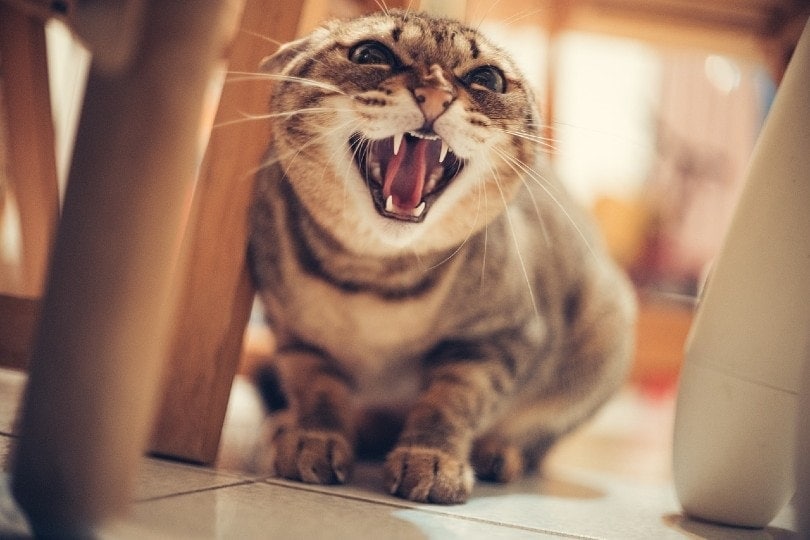
6. Pica
Pica is a condition that may appear in cats for many reasons, such as increased hunger often due to an underlying illness, lack of socialization, redirected hunting, boredom, or a behavioral disorder, while early weaning does not seem to play a role. If your cat has pica, you may also notice that he tends to suckle on things such as blankets, shirts, or even on you.
Pica can also be associated with nutritional deficiencies, genetic predispositions, or medical complications. If you suspect your cat has pica, you can speak to your vet to rule out an underlying medical cause. If something else is determined to be the cause, such as environmental factors, compulsive behavior, or diet issues, your vet can help you form a plan of action.
Frequently Asked Questions (FAQ’s)
Is Eating Tape Bad for Your Cat?
Eating tape is not just bad for your cat; it is dangerous. Your cat will likely vomit the tape up or pass it in the litter box, but there is still a chance that it can get stuck at the back of the throat or in their gastrointestinal system and cause a blockage. Intestinal blockages can be life threatening if not treated in time, so it is imperative that your cat does not ingest anything that could lead to such an obstruction.
If your cat has an intestinal blockage, you must get them to your vet immediately. Signs of intestinal obstructions include vomiting, reduced appetite, changes in defecation, diarrhea, lethargy, abdominal pain, weight loss, and changes in behavior.
Different types of obstructions will determine how your vet chooses to treat the issue. Likewise, whatever has caused the blockage (in this scenario, tape) will also influence your vet’s decision-making. Some treatment options include induced vomiting, endoscopy, or surgery. There is a chance that your cat will be hospitalized for a few nights for recovery and supervision.
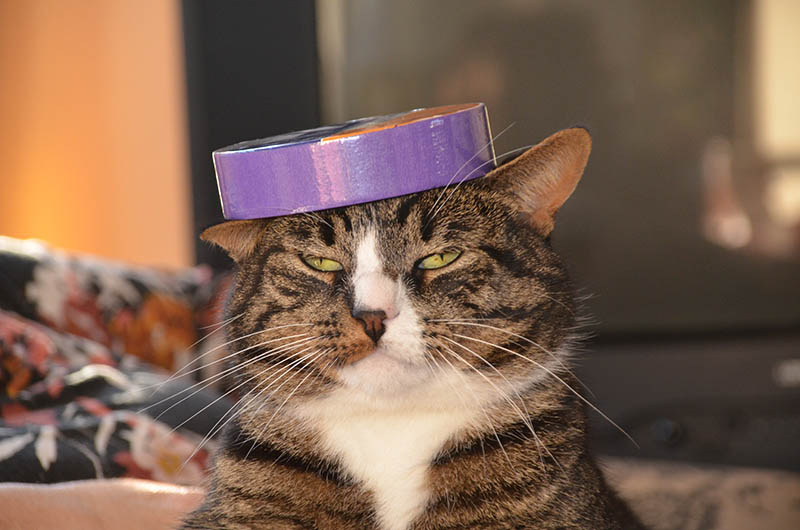
How to Get Your Cat to Stop Eating Tape?
Since eating tape is so dangerous, you will want to eliminate this habit before it can evolve into something much more challenging to manage. The best way to prevent your cat from eating tape is to store it in a secure location that your cat cannot access.
You should investigate the root issue if your cat begins to eat other non-food items once the tape is out of his reach. Why are they eating non-food items? Is it due to one of the reasons on this list? Once you determine the cause of their behavior, you can begin taking steps to curb it. For instance, if they are eating non-food items due to boredom, you should provide them with more enrichment and entertainment options.
Consult your vet to ensure that there is no underlying medical reason for your cat’s behavior, such as pica.
Conclusion
Cats are curious creatures, but their strange behavior is not always something that should be indulged. If your cat has made a recent habit of eating tape, you should put a stop to it right away to prevent any serious health complications. There are many reasons why your cat may have taken a sudden liking to tape, including the reasons listed above. Using this list with the help of a veterinarian, you should be able to narrow down the purpose of your cat’s behavior and effectively combat it.
Featured Image Credit: Monika Wisniewska, Shutterstock


